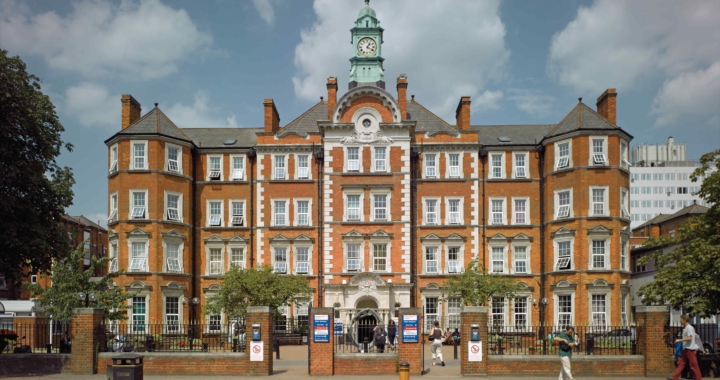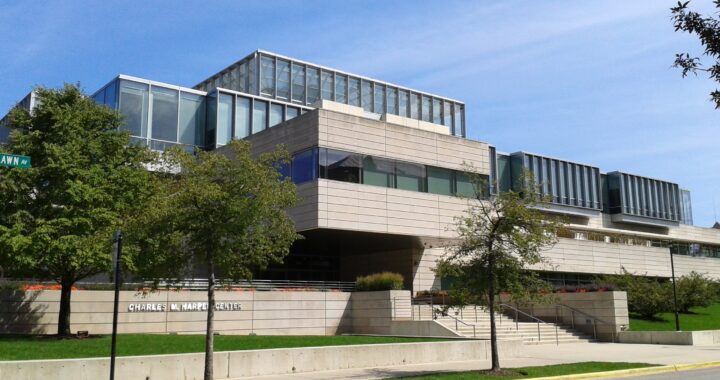Choosing between a MiM in UK vs MiM in France is a critical decision for many Indian students. Both destinations are celebrated for their top-tier educational institutions, globally recognized degrees, and strong industry connections. The UK, with its prestigious Russell Group universities, is renowned for offering flexible academic structures and robust ties to multinational corporations. Meanwhile, France’s Grandes Écoles system stands out for its structured, career-oriented approach, often tailored to specific industries like luxury management, finance, and hospitality.
For Indian students, factors such as tuition costs, job opportunities, cultural adaptation, and post-study visa policies often play a decisive role. The cost of living in London is famously high, but it comes with unparalleled global exposure. In contrast, Paris, while still expensive, offers a slightly more affordable student experience. Additionally, language can be a determining factor—most MiM programs in France are English-taught, but proficiency in French can significantly enhance job prospects in the local market.
In this blog, we’ll break down five major differences—admission requirements, average salaries, program fees, job opportunities, and global recognition—to help you decide which country aligns best with your career aspirations.
What Are the Key Questions Students Ask?
When considering a MiM abroad, students often grapple with specific concerns that shape their decision. Is a MiM from London Business School (LBS) better than one from HEC Paris? Are admission requirements in Russell Group universities more flexible compared to Grandes Écoles? Does the UK’s Graduate Route visa provide better post-study work opportunities than France’s APS (Autorisation Provisoire de Séjour)?
The answers to these questions aren’t always straightforward. For example, while the UK’s Graduate Route allows MiM graduates to stay and work for two years post-graduation, France offers a one-year APS permit, extendable under certain conditions. Moreover, salaries vary between the two regions, with UK graduates earning an average of £35,000–£45,000 annually, while French graduates from top Grandes Écoles often start at around €35,000–€45,000. By the end of this blog, you’ll have a clear understanding of the trade-offs and benefits associated with pursuing a MiM in these two leading study-abroad destinations.
Major Differences: MiM in UK vs MiM in France

Difference #1: Admission Requirements
MiM in the UK: Flexible and Globally Oriented
Admission requirements for a Master in Management (MiM) in the UK are generally straightforward and designed to attract a diverse pool of candidates. Most UK universities, including renowned names like London Business School (LBS) and Imperial College Business School, require a 3-year undergraduate degree with at least a 2:1 or 2:2 classification. Unlike some other postgraduate business programs, the GMAT/GRE is often optional for MiM applicants, though a strong score can enhance your application, especially for competitive institutions.
Language proficiency is a standard requirement, with most universities mandating IELTS (6.5–7.0 overall band score) or TOEFL (90–100) for non-native English speakers. Rolling admissions are common in UK universities, with deadlines often set in September or October for programs starting the following academic year. One advantage of applying to the UK is the streamlined admission process. Universities place significant emphasis on the Statement of Purpose (SOP) and Letters of Recommendation (LORs), allowing candidates to highlight their leadership potential, career goals, and academic readiness effectively.
MiM in France: Structured and Academically Intense
France’s MiM programs, especially those offered by Grandes Écoles such as HEC Paris, ESSEC, and EDHEC, follow a more structured and competitive admission process. A 3-year undergraduate degree is usually the minimum academic requirement, but many French schools prefer candidates with strong academic performance and relevant internships or projects.
Standardized test scores, including the GMAT (average score: 650–700), GRE, or the TAGE-MAGE (a French management aptitude test), are often required. While many MiM programs in France are English-taught, a basic understanding of French (A2–B1 level) can be advantageous, particularly for internships and job placements.
Admission cycles in France often include multiple intakes, with deadlines varying across institutions. Some programs also have integrated pathways like Classe Préparatoire, which require candidates to complete an additional preparatory year before entering the main program. Furthermore, interviews play a pivotal role in the admission process, with top schools emphasizing candidates’ motivation, career clarity, and alignment with the program’s values during these interactions.
Application Timelines and Key Differences
In the UK, admissions are more flexible with rolling application deadlines, whereas in France, applicants must adhere to more structured timelines, especially for Grandes Écoles. Additionally, while GMAT scores are often optional in the UK, they are typically mandatory for top MiM programs in France. For Indian students, this means that applications to French institutions might require more preparation in terms of standardized tests and language proficiency.
Difference #2: Average Salaries After Graduation

Salaries in the UK: Competitive Packages with a Global Edge
Graduates of MiM programs in the UK are often well-compensated, with starting salaries ranging from £30,000 to £45,000 annually. Top business schools like London Business School (LBS) and Imperial College Business School have strong relationships with global firms in finance, consulting, and technology, allowing graduates to secure competitive positions shortly after graduation.
London, being a major financial and business hub, offers higher salary opportunities, but this comes with a notably high cost of living. According to data from the Office for National Statistics (ONS), sectors like finance, consulting, and technology remain the largest employers of MiM graduates, with cities like London, Manchester, and Edinburgh being popular job destinations. However, competition for top jobs is fierce, and graduates often need to leverage their university’s alumni network, career services, and internship opportunities to secure their preferred roles.
Salaries in France: Strong Placement in Niche Industries
In France, MiM graduates, particularly those from Grandes Écoles, enjoy competitive salaries comparable to their UK counterparts. Starting salaries typically range between €35,000 and €45,000 per year, with top schools such as HEC Paris and ESSEC often exceeding this average. France’s economy has a strong focus on sectors such as luxury goods, finance, hospitality, and consulting, with Paris serving as the epicenter for these industries. Graduates from programs with specializations in areas like luxury brand management or international finance often command premium salaries and have higher employability rates.
According to INSEE (French National Institute of Statistics and Economic Studies), graduates from French Grandes Écoles have strong employment rates, with many securing roles in major global firms headquartered in Paris and Lyon.
Salary Comparison: MiM in UK vs MiM in France
While both the UK and France offer competitive salary packages to MiM graduates, the UK tends to favor global corporate exposure, whereas France provides strong footholds in niche sectors such as luxury and finance. In terms of long-term growth, graduates from UK universities might have an edge in international mobility, whereas French graduates could benefit more from regional expertise and industry connections within Europe.
Difference #3: Program Fees and Funding Options

Fee Structure in the UK: A Significant Investment with Scholarship Opportunities
Pursuing a Master in Management (MiM) in the UK is often seen as a significant financial investment. Tuition fees for MiM programs at prestigious institutions like London Business School (LBS), Imperial College Business School, and Warwick Business School typically range from £20,000 to £35,000 per year. These figures can go even higher at top-ranked institutions, reflecting the premium value associated with UK business degrees.
In addition to tuition, students must budget for living expenses, which can vary significantly based on location. London, for instance, is notably expensive, with average monthly living costs estimated at around £1,200–£1,800. However, UK universities offer a variety of scholarships and financial aid options to ease this financial burden. Notable examples include the Chevening Scholarships, which are fully funded and highly competitive, and university-specific bursaries. Many universities also provide merit-based scholarships for international students with strong academic backgrounds or exceptional leadership potential.
Despite the high costs, the return on investment (ROI) for MiM graduates in the UK is generally favorable, thanks to the country’s strong job market and extensive corporate connections.
Fee Structure in France: Affordable Excellence with Government Support
In contrast, pursuing a MiM in France is generally more affordable than in the UK, especially at public universities and Grandes Écoles. Tuition fees at Grandes Écoles, such as HEC Paris, ESSEC, and EDHEC, typically range from €10,000 to €25,000 per year. Public universities, on the other hand, may charge significantly lower tuition fees, sometimes as low as €500 to €3,000 per year for international students.
The cost of living in Paris is also slightly lower than in London, with average monthly expenses estimated at €1,000–€1,500, depending on lifestyle choices and accommodation preferences. France is well-known for its generous scholarship programs aimed at international students. Scholarships like the Eiffel Excellence Scholarship Program, funded by the French Ministry for Europe and Foreign Affairs, cover tuition fees and living costs. Additionally, Campus France provides detailed information on region-specific scholarships and financial aid opportunities. Moreover, students in France often benefit from government subsidies for housing through programs like CAF (Caisse d’Allocations Familiales), which can significantly reduce monthly rent expenses.
Scholarships and Grants: A Comparative View
When comparing funding opportunities, the UK emphasizes merit-based scholarships and international bursaries, while France combines merit-based and need-based aid with additional government support. For Indian students, both destinations offer ample funding options, but France’s affordability and government assistance often make it more budget-friendly for those conscious of costs.
Difference #4: Job Opportunities & Post-Study Work (PSW)
Frustrated with Generic College Lists from AI Tools?
Get a tailored college shortlist crafted by study abroad experts who understand YOUR goals, profile, and aspirations.

Job Market in the UK: A Strong Pathway to Global Careers
The UK job market offers a strong platform for MiM graduates to launch their careers. The introduction of the Graduate Route visa allows international students to stay and work in the UK for up to two years after graduation, providing ample time to gain valuable work experience. Industries such as finance, consulting, technology, and marketing dominate the employment landscape for MiM graduates, with cities like London, Manchester, and Edinburgh serving as major employment hubs.
Top employers include global giants such as Deloitte, PwC, HSBC, McKinsey & Company, and Amazon. MiM graduates from schools like London Business School (LBS) and Imperial College Business School are highly sought after, with strong placement records and extensive alumni networks supporting their job searches. However, it’s worth noting that competition in the UK job market is intense, particularly in sectors like finance and consulting. Employers often prioritize candidates with prior internships or relevant professional experience.
Job Market in France: Strong Industry Integration with Local Focus
France offers excellent career prospects for MiM graduates, especially in sectors such as luxury goods, finance, hospitality, and consulting. The APS (Autorisation Provisoire de Séjour) visa allows international graduates to stay in France for up to 12 months post-graduation to look for employment, with possibilities for extension under certain conditions. Paris, in particular, is a global hub for luxury brands and financial services, offering abundant opportunities for MiM graduates. Companies like L’Oréal, LVMH, BNP Paribas, and Société Générale are among the top recruiters for business graduates.
Additionally, the Grande École system emphasizes industry connections and internships, which means many MiM students secure job offers even before graduation. However, language can be a barrier—proficiency in French is often a prerequisite for securing roles in local companies, even if the academic program is English-taught.
Employment Statistics and Post-Study Work Comparison
While both the UK and France offer promising employment opportunities, their approaches differ. The UK provides a more structured two-year post-study work visa, making it easier for graduates to explore multiple job opportunities without immediate visa pressures. In contrast, France emphasizes niche industries and internships during the MiM program, with a shorter APS visa period. Graduates fluent in French often enjoy a competitive edge in securing long-term positions.
Difference #5: Global Value & Recognition of MiM Degrees
Reputation of MiM in the UK: A Gateway to Global Opportunities
The UK’s MiM programs are highly regarded on the global stage, thanks to the country’s long-standing academic tradition and strong corporate connections. Institutions such as London Business School (LBS), Imperial College Business School, and Warwick Business School consistently feature in global rankings like the Financial Times MiM Rankings and QS Business Master’s Rankings.
One of the key strengths of a UK MiM degree lies in its alignment with the global corporate environment. Graduates from UK institutions often find themselves well-positioned for careers not only in the UK but also in the US, Middle East, and Asia-Pacific regions. Moreover, UK universities emphasize practical learning through case studies, live consulting projects, and robust internship opportunities. This approach ensures that graduates not only have theoretical knowledge but also the skills and adaptability to excel in diverse corporate settings.
Reputation of MiM in France: Prestige Rooted in Tradition
In France, the Grande École system carries immense prestige, not just in Europe but across the world. Institutions like HEC Paris, ESSEC Business School, and EDHEC Business School are globally recognized for their academic rigor, extensive alumni networks, and specialized focus areas, such as luxury brand management, finance, and international business.
The French MiM programs are deeply integrated with industry partners, ensuring that students gain hands-on experience through mandatory internships and real-world business projects. Graduates from HEC Paris and ESSEC, for example, are highly sought after in sectors like luxury goods, consulting, and finance, both within France and internationally. While French MiM degrees are universally respected, they tend to have a stronger foothold within Europe. Graduates often find opportunities in Paris, Frankfurt, Geneva, and Brussels, benefiting from the region’s interconnected economy.
Where MiM Is More Recognized and Why
When it comes to global mobility and recognition, the UK has a slight edge due to its English-speaking environment and broader international corporate ties. Graduates from UK MiM programs often find it easier to transition into roles in countries like the US, Canada, and Australia. On the other hand, France excels in specialized sectors and European market dominance. A MiM degree from a Grande École is almost a golden ticket for roles in luxury management, international finance, and consulting within Europe.
Frequently Asked Questions
Are French language skills mandatory for MiM in France?
While many MiM programs in France are taught in English, having at least an intermediate level of French proficiency (B1/B2) can significantly improve your chances of securing internships and jobs in French-speaking firms.
Which offers a stronger alumni network, UK or France?
Both regions have strong alumni networks. The UK alumni networks are typically more global, while France’s alumni networks are deeply rooted in Europe’s corporate circles and specialized industries like luxury goods and finance.
How expensive is living in Paris compared to London?
Both cities are among the most expensive in Europe. However, Paris generally offers slightly lower living costs (€1,000–€1,500 per month) compared to London (£1,200–£1,800 per month).
Is a MiM from France recognized outside Europe?
Yes, top institutions like HEC Paris and ESSEC Business School are recognized globally. However, their strongest reputation remains within Europe and French-speaking regions.
Can I switch to an MBA after completing a MiM in the UK or France?
Absolutely! Many MiM graduates gain a few years of work experience and then pursue an MBA for further career advancement. Both UK and French MiM programs serve as strong stepping stones for future MBA admissions.
Conclusion
Choosing between a MiM in UK vs MiM in France isn’t a one-size-fits-all decision. Both countries offer exceptional education, globally recognized degrees, and promising career prospects, but their strengths lie in different areas. The UK excels in global corporate exposure, a structured post-study visa system, and strong ties to multinational firms. On the other hand, France thrives in specialized sectors like luxury management and finance, with its prestigious Grande École system offering unmatched industry integration.
When making your decision, carefully weigh factors like tuition costs, living expenses, visa policies, and career aspirations. For students seeking global corporate careers, the UK is often a better fit. Conversely, if you’re passionate about luxury management, European markets, or niche industries, France might be your ideal choice. At the end of the day, your decision should align with your long-term goals, financial considerations, and preferred cultural experience.



